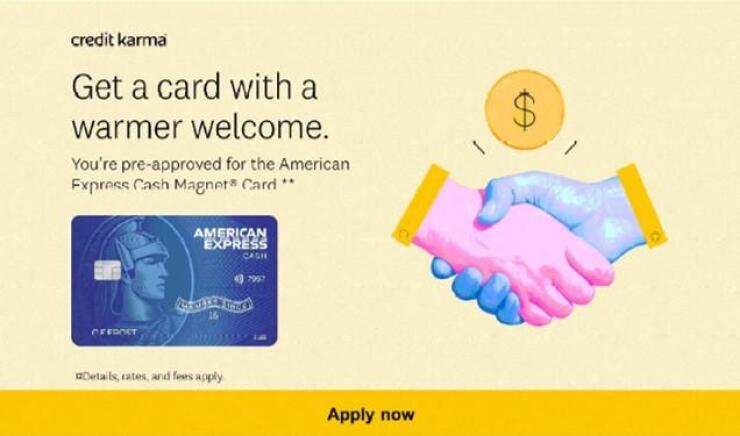The Federal Trade Commission
Credit Karma also falsely told consumers that they had a 90% likelihood of approval, according to the FTC. By contrast, almost a third of consumers who applied for some supposedly pre-approved offers were denied. To add insult to injury, many such applicants then suffered a hit to their credit scores.
According to
After the proposed agreement was released, Susannah Wright, the chief legal officer at Credit Karma, denied the allegations in
As of the time of publication, Credit Karma still advertises in its iPhone app to some consumers that they have 90% odds of receiving approval for certain credit cards. The FTC said Credit Karma advertised phony pre-approvals from February 2018 until April 2021.
One of the card issuers whose products Credit Karma advertised told the FTC, "The Company does not preapprove, prequalify, or preselect consumers to whom to offer the [Company's credit card] via Credit Karma," according to the commission's complaint. The FTC did not name the card issuer.

A spokeswoman for Credit Karma said the company "uses machine learning to surface our partners' financial products on our platform," which she said helps consumers find financial products for which they are likely to be approved. The spokesperson also said the models use "privacy protected, de-identified data points" about Credit Karma users to target advertisements.
The FTC said Credit Karma designed the pre-approval ads using "dark patterns" to trick consumers into clicking ads for credit card applications. For example, Credit Karma found through testing that showing consumers a pre-approval claim resulted in an increase in click rates compared to telling consumers they had "excellent" odds of approval even though, according to the FTC, the pre-approval claims conveyed "false certainty."
Based on the FTC's account, Credit Karma strayed far from the regulations that financial institutions must follow when generating and advertising pre-approvals for credit products, according to Stewart Watterson, a strategic analyst for the consulting firm Aite-Novarica who was previously a senior vice president and business credit card group leader for PNC Bank.
The FTC said in its complaint that Credit Karma's training material listed, "I was declined for a pre-approval credit card offer .... How is that possible?!?!?!" and confusion about pre-approval as common issues customer service representatives should expect to encounter. Watterson said this shows Credit Karma knew that it was providing pre-approvals that turned into denied applications.
Companies that follow pre-approval regulations may at times extend pre-approvals to people who are ultimately denied for credit. However, a high percentage — Watterson did not specify how high — of consumers who receive a pre-approval and then apply must be given final approval, else the card issuer may be violating regulations governing pre-approvals.
Watterson said Credit Karma might have known about rules that financial institutions must follow when sending pre-approvals, but it might have believed those rules did not apply to the company, which is not regulated as a card issuer.
Credit Karma and Fandango have settled charges with the Federal Trade Commission that their mobile applications inadequately protected consumers' payments and other personal data.
Credit card companies generate pre-approvals by purchasing lists of consumer names and addresses from credit bureaus. The card issuer sets the criteria for consumers it is looking to reach — for example, consumers who live in a certain geography and have a credit score within a certain range — and the credit bureau provides the card issuer a list of consumers who meet those criteria.
According to Watterson, not only must the card issuer follow certain laws in final approvals for credit, but it must also follow those laws when obtaining the list of people to whom it makes pre-approval offers.
In other words, the process is regulated from start to finish, and financial institutions who stay in line throughout the process do not need to fear any fines like the one the FTC issued Credit Karma. Financial institutions in the business of offering credit products and pre-approvals to customers do not need to fear that they might be next, according to Watterson, as long as they are following those rules.
"This isn't the FTC doing some enforcement crackdown because everyone has strayed from the law," Watterson said. "These guys were nowhere near the line."






